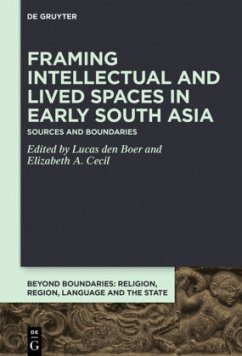The contributions to this book address a series of 'confrontations'-debates between intellectual communities, the interplay of texts and images, and the intersection of monumental architecture and physical terrain-and explore the ways in which the legacy of these encounters, and the human responses to them, conditioned cultural production in early South Asia (c. 4th-7th centuries CE). Rather than an agonistic term, the book uses 'confrontation' as a heuristic to examine historical moments within this pivotal period in which individuals and communities were confronted with new ideas and material expressions.
The first half of the volume addresses the intersections of textual, material, and visual forms of cultural production by focusing on three primary modes of confrontation: the relation of inscribed texts to material media, the visual articulation of literary images and, finally, the literary interpretation and reception of built landscapes. The second part of the volume focuses on confrontations both within and between intellectual communities. The articles address the dynamics between peripheral and dominant movements in the history of Indian philosophy.
Hinweis: Dieser Artikel kann nur an eine deutsche Lieferadresse ausgeliefert werden.
The first half of the volume addresses the intersections of textual, material, and visual forms of cultural production by focusing on three primary modes of confrontation: the relation of inscribed texts to material media, the visual articulation of literary images and, finally, the literary interpretation and reception of built landscapes. The second part of the volume focuses on confrontations both within and between intellectual communities. The articles address the dynamics between peripheral and dominant movements in the history of Indian philosophy.
Hinweis: Dieser Artikel kann nur an eine deutsche Lieferadresse ausgeliefert werden.








